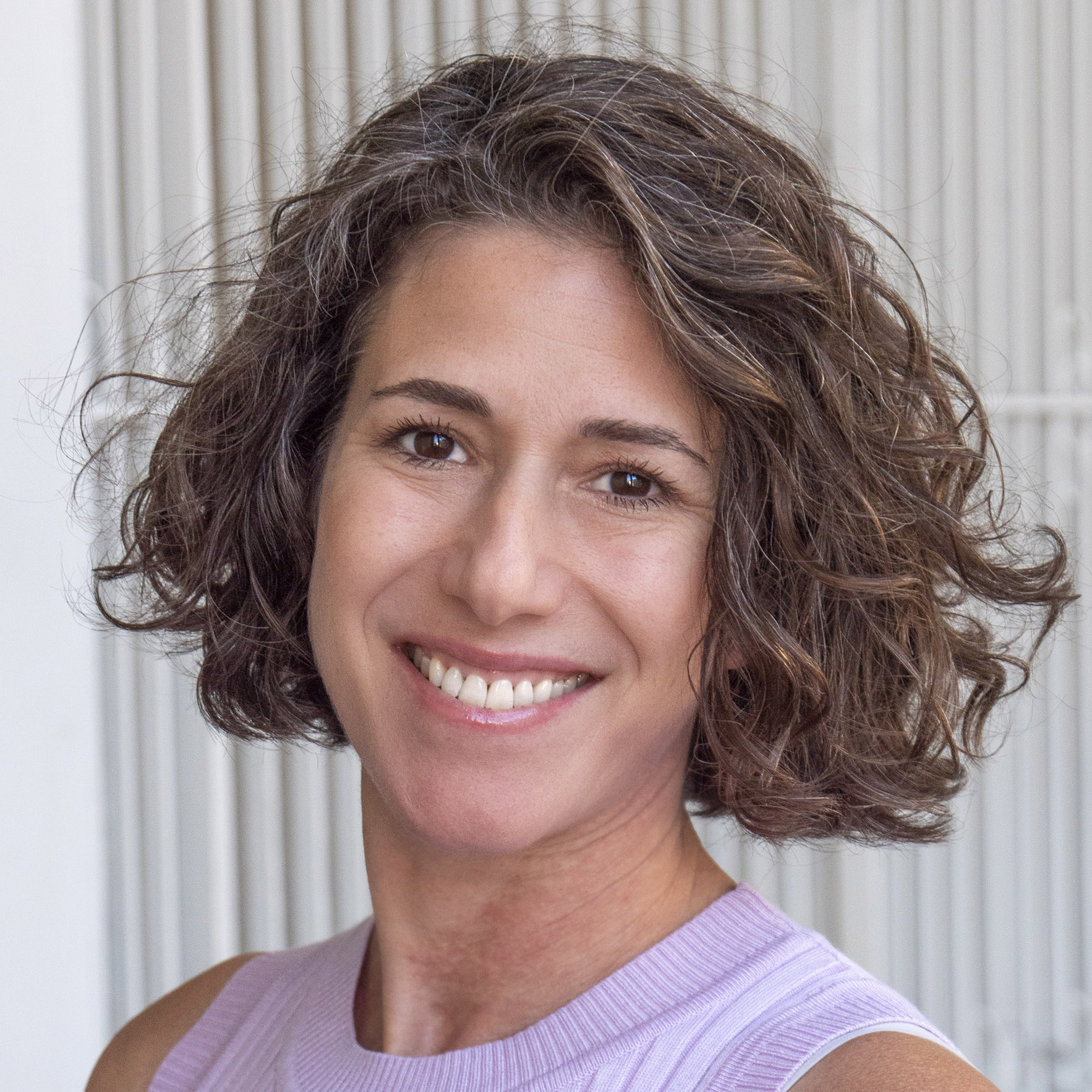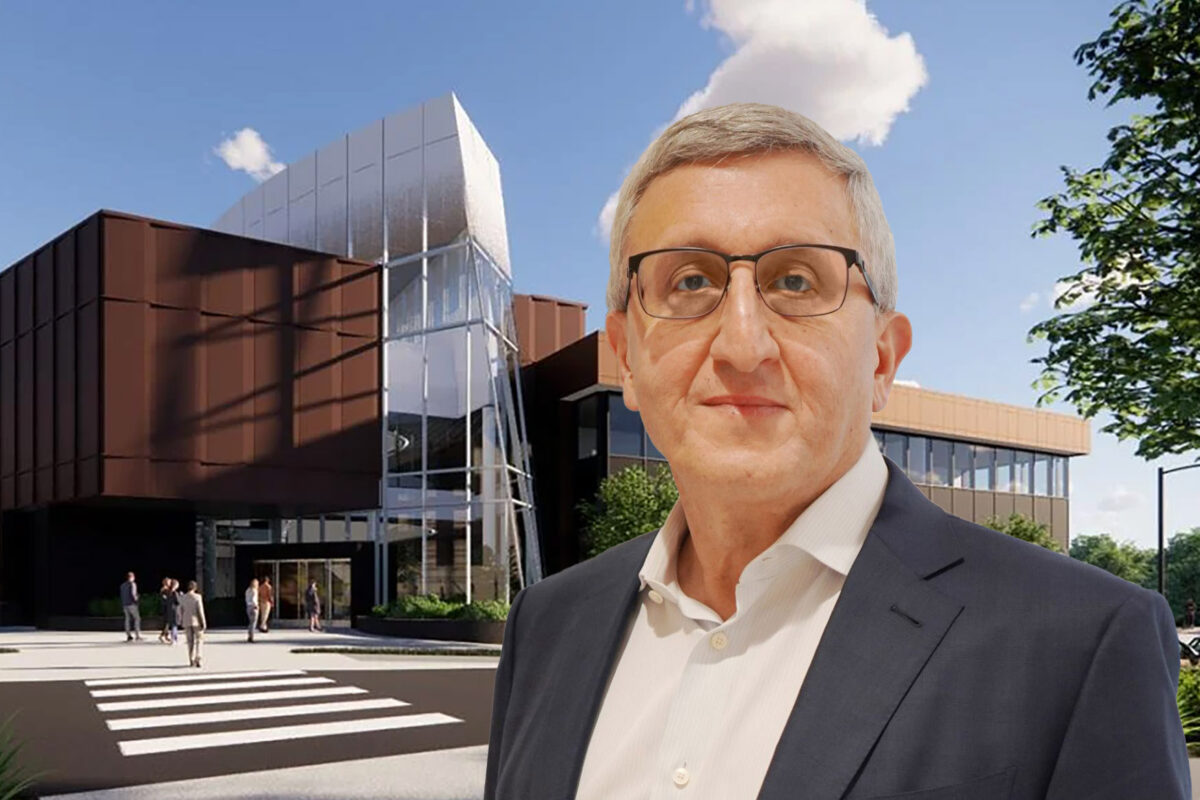Whether it’s as a Carnegie Mellon University professor in the university’s Robotics Institute, acting as a VP deputy director of advanced technology and projects for Google, or his stint as a startup CEO at companies such as Draper, Gabriel is no stranger to leadership.
He’s the inaugural leader at the Pitt Bioforge Biomanufacturing Center, a cell and gene therapy facility in Hazelwood Green. Greenlit by the City Planning Commission last fall, the University of Pittsburgh–affiliated site’s groundbreaking is still a little ways out, but Gabriel is wasting no time getting started.
Tasked with turning an idea years in the making into a reality, the MIT graduate told Technical.ly he’s optimistic. Thanks to his experience as a professor, an engineer, and even a founder, Gabriel said, he believes he’s in a good position to make academics and innovation collide.
Read on to hear about his first job in tech, his new hobby (bookbinding!) and why he admires Steve Jobs. This interview has been edited for length and clarity.
What made you interested in a career in the tech sector?
Well, it was a number of things. I loved math, and I loved science. But what I love most is creating things that don’t exist today. That to me is the essence of innovation. Thinking about, “What do we need as humans to make our lives richer, healthier, and better,” whether that’s working on microphones for cell phones or new ways of manufacturing precision medicine. It’s always about doing things, making things, inventing things that don’t exist yet.
What are your day-to-day responsibilities?
Like any inaugural CEO, the organization doesn’t exist. So this is an interesting opportunity to really provide the vision articulated.
Get all the stakeholders behind that vision — which includes Richard King Mellon Foundation, which has given the $100 million investment to kick it off — and in particular, the [University of Pittsburgh’s] health sciences schools. Understand what we’re trying to do. Get the activities going, secure interim space until the building’s built, oversee the building of that space, get the various people who are going to benefit from the BioForge activities involved, and launch what everybody wants to happen in the region.
How has your career progressed through the years?
My first position in the tech sector was as what was called a member of technical staff at Bell Laboratories, which used to be the premier research organization for the AT&T Bell Telephone System — which you’ve probably never even heard of (or maybe have seen evidence of, for old signs all over the place).
But I’d say the major difference is as you progress in a career in tech, you go from being what I would call at the bench, doing the scientific work yourself — whether it’s soldering things or building chips or designing chips or developing a new type of process — to where you are now, where I am now, in a CTO or CEO position. You rarely are doing that work yourself. But you are guiding that work, you are driving new visions, you’re recruiting people to do that work.
And so it’s an evolution from doing the work directly to charting a path for the work, but you can’t be a leader and chart a vision in your direction without having scars on your back or on your fingers.
Who are some technologists you look up to and why?
I would say Steve Jobs, but probably not for the reason that most people may think — because he invented the personal computer, the Macintosh. It’s more that he was very clear about what it took to make something useful to humans.
Too often, technologists and scientists get too wrapped up in their inventions and don’t put themselves in the position of who’s going to use the technology. Steve Jobs’s genius was understanding how the innovations that were coming out were going to be useful to people capturing their music digitally, being able to play it anytime they wanted, and making the interfaces to phones and computers be more human-oriented, rather than technology- or computer-oriented.
What hobbies or interests do you enjoy outside work?
I’m a cook. I have always been a cook, I enjoy cooking. And I find a lot of analogies in the balance between creativity and discipline. When you’re putting together a meal, you can’t get too wild because then it’s inedible. And you can’t just focus on it being edible all the time. You want to change things up.
The other interest, which is a recent interest, is bookbinding. I’m a lover of reading and books, and I have lots of old books that were falling apart. So I decided to learn how to bind books.
What are some of the biggest challenges you’ve encountered throughout your career?
I would say the number one challenge is finding the right people to do the work with. It all boils down to people. If you have the right people motivated, all working together in the same direction with clear objectives, clearly understanding what their roles are, and being in agreement on how to get to those objectives.
That’s the biggest challenge, because not only is it about bringing them together in the first place, but keeping them all together. Whether it’s a startup or at Draper, when I was up in Cambridge, with almost 2000 people. It’s keeping those teams together, keeping people together. Life interrupts in all sorts of ways.
So I’d say the biggest challenge throughout my career has been finding the right people, getting them all pointed in the right direction, and then keeping them all pointed in the right direction until you were able to accomplish what you set out to do.
Atiya Irvin-Mitchell is a 2022-2024 corps member for Report for America, an initiative of The Groundtruth Project that pairs young journalists with local newsrooms. This position is supported by the Heinz Endowments.Before you go...
Please consider supporting Technical.ly to keep our independent journalism strong. Unlike most business-focused media outlets, we don’t have a paywall. Instead, we count on your personal and organizational support.
Join our growing Slack community
Join 5,000 tech professionals and entrepreneurs in our community Slack today!

The person charged in the UnitedHealthcare CEO shooting had a ton of tech connections

Delaware students take a field trip to China using their tablets and ChatGPT

Northern Virginia defense contractor acquires aerospace startup in $4B deal



